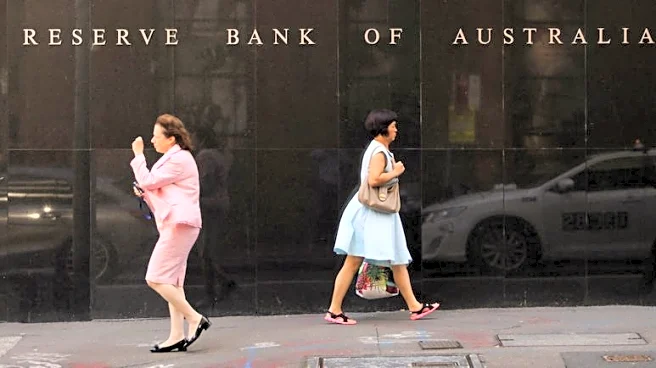What's Happening?
Santana Minerals, an Australian mining company, is facing criticism over its application to fast-track the Bendigo-Ophir Gold project in Central Otago, New Zealand. The project, which is the largest new
gold initiative in the country in decades, has already seen over $8 million invested in environmental and technical assessments. The application comprises approximately 9,400 pages and 135 reports. Sustainable Tarras, a local group, has expressed concerns about the fast-track process, arguing that it limits community input and could lead to significant environmental impacts. Santana Minerals, however, maintains that the fast-track process is not a shortcut but a rigorous framework that ensures thorough evaluation. The company argues that the project will create jobs and contribute significantly to the economy, with an estimated $5.8 billion in GDP and $1.8 billion in government revenue.
Why It's Important?
The controversy surrounding the fast-tracking of the Bendigo-Ophir Gold project highlights the tension between economic development and environmental stewardship. For Santana Minerals, the project represents a significant economic opportunity, promising job creation and substantial contributions to the national economy. However, for local communities and environmental groups like Sustainable Tarras, the fast-track process raises concerns about adequate environmental protection and community involvement. The outcome of this dispute could set a precedent for how large-scale mining projects are evaluated and approved in New Zealand, potentially influencing future policy and regulatory frameworks. The situation underscores the broader global challenge of balancing economic growth with environmental sustainability and community rights.
What's Next?
As the fast-track process continues, Santana Minerals will need to address the concerns raised by Sustainable Tarras and other stakeholders. The company has committed to transparency and plans to release the full suite of technical reports once statutory checks are completed by the Environmental Protection Authority. Meanwhile, Sustainable Tarras is seeking to be included in the fast-track process and has called on local councils to ensure community involvement. The resolution of this issue will likely involve ongoing dialogue between the company, local communities, and regulatory authorities. The decision on whether the project proceeds under the fast-track process could have significant implications for future mining projects in the region.
Beyond the Headlines
The debate over the Bendigo-Ophir Gold project also touches on broader ethical and cultural issues. The fast-track process, while designed to streamline approvals for major projects, may inadvertently marginalize community voices and environmental concerns. This raises questions about the fairness and inclusivity of such processes, particularly in regions with unique ecosystems and cultural heritage. The project could also prompt discussions about the long-term sustainability of mining practices and the need for more robust frameworks that balance economic, environmental, and social considerations.










